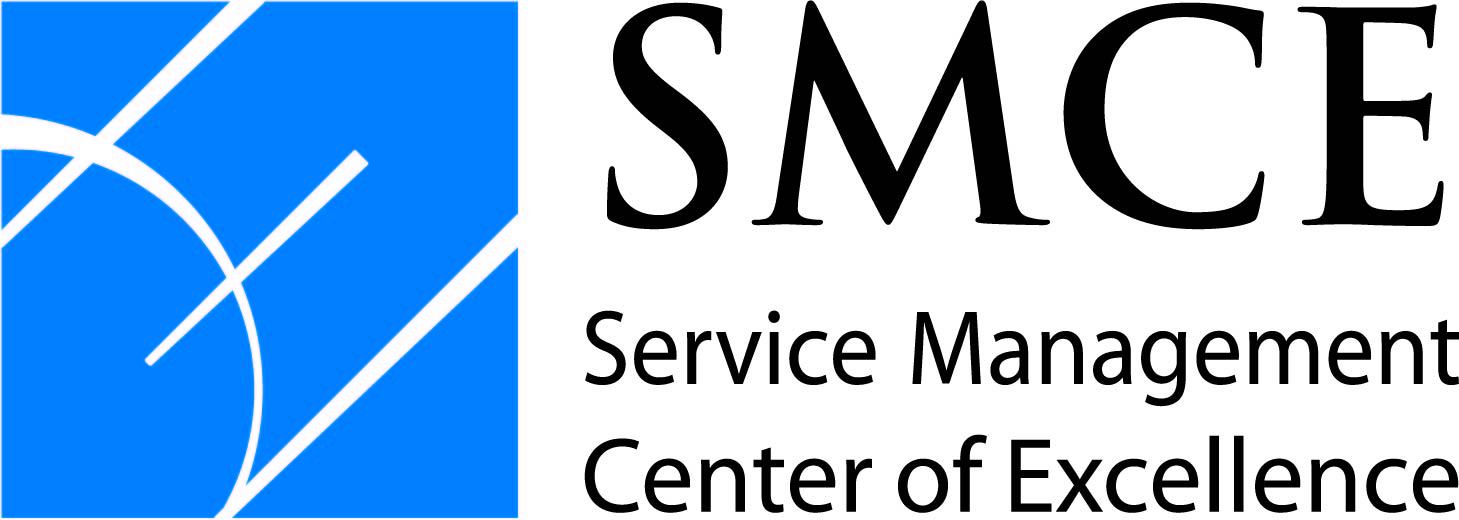In an era marked by unprecedented technological advancement, the GCC region is making significant strides toward becoming a leader in smart industries. Smart industries—driven by digital innovations such as artificial intelligence (AI), the Internet of Things (IoT), big data, and advanced automation—are transforming traditional sectors like manufacturing, energy, healthcare, and logistics. This transformation is not only boosting operational efficiency and productivity but also supporting the economic diversification objectives of GCC nations. Through national initiatives like Saudi Vision 2030 and the UAE Centennial 2071, GCC countries are creating an environment conducive to digital transformation and growth, aiming to reduce reliance on oil while positioning themselves as global hubs for innovation.
Yet, with these opportunities come new challenges. The high interconnectivity and reliance on data-driven technologies in smart industries expose organizations to heightened cybersecurity risks, regulatory complexities, and potential operational disruptions. It is here that IT governance plays an indispensable role. IT governance ensures that technology initiatives align with broader organizational goals, comply with regional and international regulations, and maintain a high standard of data security and risk management. For the GCC countries, a strong IT governance framework is essential not only for the stability and success of individual businesses but also for the realization of their ambitious national visions. As digital transformation accelerates across Saudi Arabia, the UAE, Kuwait, Qatar, Oman, and Bahrain, effective IT governance has become the foundation upon which smart industries can innovate responsibly and sustainably.
Why IT Governance Is Essential for Smart Industries
Smart industries are characterized by interconnected devices, real-time data flows, and automated decision-making systems that optimize production and service delivery. However, the very nature of these industries—where technology drives almost every process—demands a high level of oversight and structure. Effective IT governance provides the policies, processes, and frameworks necessary to manage these complexities and ensure that digital investments are strategically aligned, secure, and compliant.
- Data Security and Privacy
In smart industries, data is a valuable asset that must be handled with care. IoT sensors, connected machines, and AI systems generate massive amounts of data, including sensitive information that, if exposed, could harm an organization’s reputation or lead to financial losses. Effective IT governance ensures that data is collected, stored, and processed securely. It establishes clear policies around data privacy and access controls, particularly crucial in the GCC, where national data protection regulations are evolving to align with global standards like the EU’s GDPR.
For instance, the UAE’s National Cybersecurity Strategy enforces strong data security measures across industries, ensuring that smart technologies like DEWA’s IoT-enabled smart grid systems protect user data from unauthorized access. In Saudi Arabia, the Saudi Data and AI Authority (SDAIA) implements data governance protocols that support secure data usage in sectors such as healthcare and public services, facilitating digital innovation without compromising data privacy. - Risk Management and Cybersecurity
With digital interconnectivity comes increased vulnerability to cyber threats, which can compromise sensitive data, disrupt operations, and result in significant financial losses. Cybersecurity risks are particularly high in smart industries, where a security breach could impact not only IT systems but also operational technology (OT) that directly affects production and service delivery. IT governance establishes cybersecurity protocols, incident response plans, and risk management frameworks that help organizations protect their digital and physical assets.
In the GCC, cybersecurity is a critical focus. For example, Saudi Aramco has implemented a comprehensive IT governance framework that addresses cybersecurity at all levels, from connected IoT devices to enterprise data centers. This framework supports risk assessment, real-time monitoring, and rapid response to emerging threats, ensuring operational continuity across Aramco’s global oil production network. - Regulatory Compliance
Smart industries must navigate complex regulatory landscapes, especially as GCC governments introduce new regulations to safeguard data, promote environmental sustainability, and protect consumer rights. IT governance frameworks enable organizations to stay up-to-date with evolving regulations and ensure compliance in areas such as data protection, environmental standards, and sector-specific guidelines. Compliance not only reduces the risk of penalties but also builds trust with consumers, investors, and regulators.
For example, Bahrain’s financial sector, which is rapidly embracing digital transformation, relies on IT governance to ensure that digital services comply with the Central Bank of Bahrain’s regulatory guidelines. This includes managing data privacy for digital transactions and implementing anti-money laundering (AML) protocols in line with international standards. Similarly, Qatar’s healthcare sector uses IT governance to manage patient data securely and comply with local health data protection regulations, supporting the growth of digital health services. - Strategic Alignment with Business Goals
IT governance ensures that technology investments are aligned with an organization’s broader strategic objectives. For smart industries, this means that digital initiatives should not only enhance operational efficiency but also drive competitive advantage, customer satisfaction, and revenue growth. IT governance provides a structured approach to prioritize IT projects, allocate resources effectively, and measure the impact of digital investments on key business outcomes.
For instance, Kuwait’s oil sector, led by the Kuwait Oil Company (KOC), has integrated digital solutions like IoT and AI to optimize oil production and improve environmental performance. Through IT governance, KOC ensures that these technologies support its strategic objectives of operational efficiency and sustainability. Governance policies help KOC evaluate the return on investment (ROI) of its digital initiatives and make informed decisions about future technology investments.
Examples of IT Governance in Smart Industries Across the GCC
The GCC countries have each taken unique approaches to incorporating IT governance into their smart industry frameworks, tailored to their respective economic goals and industry strengths. Below are examples of how IT governance is driving growth and innovation across the GCC:
- Saudi Arabia: Transforming Energy and Industrial Sectors
Saudi Arabia has placed a high priority on IT governance within its energy and manufacturing sectors as part of Saudi Vision 2030. Saudi Aramco, for example, has implemented a governance structure that supports its use of IoT, AI, and data analytics to optimize production processes, improve safety, and reduce environmental impact. By aligning IT governance with national and international standards, Aramco ensures that its digital transformation initiatives meet stringent security and compliance requirements while advancing its strategic goals. - United Arab Emirates: Smart City Development and Infrastructure
In the UAE, smart city initiatives, particularly in Dubai and Abu Dhabi, rely on strong IT governance to manage large volumes of data and interconnected devices across urban infrastructure. Dubai Electricity and Water Authority (DEWA), for example, uses IT governance to manage its IoT-enabled smart grid systems, ensuring data security, operational efficiency, and compliance with sustainability regulations. The UAE’s National Cybersecurity Strategy provides a comprehensive framework for these initiatives, setting cybersecurity standards that support the country’s goal of creating one of the most secure and technologically advanced smart cities globally. - Kuwait: IT Governance in Oil and Financial Sectors
Kuwait’s oil and financial sectors are undergoing digital transformation, supported by IT governance frameworks that ensure data security, compliance, and strategic alignment. The Kuwait Oil Company (KOC) uses real-time data analytics and IoT devices to monitor and optimize oil production. IT governance helps KOC secure sensitive data, comply with environmental standards, and align digital investments with long-term strategic objectives. In the financial sector, Kuwait’s regulatory bodies enforce IT governance guidelines that support secure digital banking and align with international data protection standards. - Qatar: Smart IT Governance in Healthcare and Sports Infrastructure
Qatar’s Vision 2030 focuses on enhancing healthcare and sports infrastructure through digital innovation. In healthcare, the Ministry of Public Health uses data governance frameworks to secure electronic health records (EHRs) and comply with local and international health data regulations. In sports, Qatar’s smart stadiums for the FIFA World Cup are equipped with IoT and AI technologies for crowd management and security, all managed under a strong IT governance framework to ensure data privacy, safety, and regulatory compliance. - Oman: Leveraging Smart Technologies in Logistics and Manufacturing
Oman is leveraging smart technologies to improve efficiency in logistics and manufacturing, sectors that are critical to its economic diversification efforts. For instance, Asyad Group, Oman’s logistics provider, has implemented IT governance to oversee data management and cybersecurity across its digital logistics operations. This governance framework is essential for managing data integrity, ensuring compliance with international logistics standards, and supporting Oman’s ambition to become a logistics hub for the GCC region. - Bahrain: Digital Finance and Regulatory Compliance
Bahrain is emerging as a regional fintech leader, with a focus on digital finance innovation supported by strong IT governance. Financial institutions in Bahrain use IT governance to manage cybersecurity, ensure data privacy, and maintain regulatory compliance as they adopt digital banking solutions and AI-driven analytics. The Central Bank of Bahrain’s regulatory guidelines are instrumental in shaping IT governance frameworks, supporting secure and compliant digital finance growth in the country.
The Future of IT Governance in GCC’s Smart Industry Landscape
As digital transformation accelerates across the GCC, IT governance will become even more crucial for supporting the sustainable growth of smart industries. Future developments may include enhanced cybersecurity protocols, industry-wide data-sharing standards, and ethical guidelines for AI and IoT applications. By embracing IT governance, organizations across the GCC can protect their assets, mitigate risks, and align digital investments with strategic goals, enabling them to thrive in a complex regulatory landscape.
For business leaders in the GCC, prioritizing IT governance is essential to harnessing the full potential of smart industries. Effective governance not only drives operational excellence but also helps organizations build resilience, adapt to regulatory changes, and maintain a competitive edge in a rapidly evolving digital economy.
In conclusion, as GCC countries move toward fully integrated smart industries, IT governance will remain the cornerstone of a digitally enabled and sustainable future. By fostering a culture of accountability, compliance, and strategic alignment, GCC businesses can confidently leverage the transformative power

